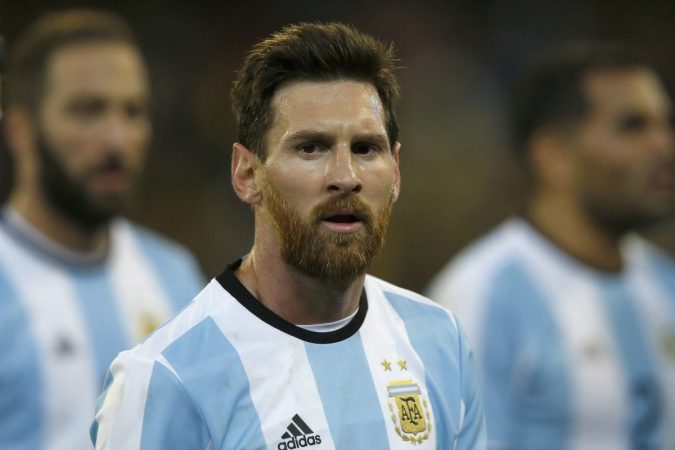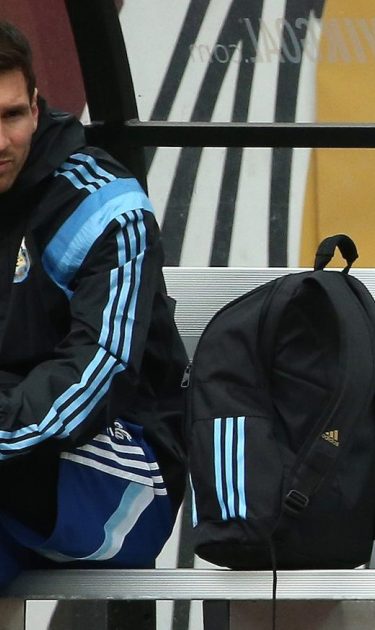Messi was the Messiah yet again for Argentina. He is the game’s ultimate wizard: the genius who has shaped modern soccer, but whom Argentina has found hard to fit in. On Tuesday night, he defied that conundrum, and dragged the Argentine ensemble of mere mortals to the World Cup. Apart from Javier Mascherano, Argentina were often paralyzed and anxious, highlighted by a jittery spell in the second half when the result was still in question.
At the altitude in Quito, Ecuador’s capital, Argentina froze. After 40 seconds, Romario Ibarra thumped the ball past Sergio Romero after a neat headed one-two with Roberto Ordonez. Cue crisis: as it stood, Argentina was out of the World Cup. In the opening quarter, Messi and Angel Di Maria showed flashes of brilliance without an end product, underlining the absurdity of Argentina’s situation.
Enter little Leo and his wonderful hat-trick.
Messi is an erudite player, but without highbrow eccentricities. He rescued the Albiceste yet again from dystopia. This was always going to be a night of fine margins and unconventional permutations. An atrocious Argentina did little to soothe the creeping unease.
The collective floundered. Messi, who had previously been shoved into a bizarre collective straightjacket with the Argentinian national team, broke lose to push his team over the finish line for Russia. He remains a magician, his unique strength is that he keeps evoking our wonderment again and again with his simple movements. He takes the ball, jinxes, shimmies, goes right, goes left, and shoots. His genteel game is based on arched feints, sideway springs, and a matrix of simple movements. Messi’s outsize star and twinkling feet saved Argentina.
Messi’s outsize star and twinkling feet saved Argentina.
Messi’s hat-trick was superb, his third goal a touch of instant innovation. On the hour, he burst forward and jinxed to the left before applying his cerebral vision to spot goalkeeper Maximo Banguera off his line. Once again, Messi delivered when required and punched Argentina’s ticket to Russia. Even Bono was impressed.
The team’s journey to next year’s global high mass was a fascinating slow-cook, pulsating and agonizing, shirt-shaking and tooth-rattling, with near heartbreak at the very end. Argentina’s story fit along all the compelling tales that made up the rich tapestry of this World Cup qualifying campaign: Iceland’s first foray, Scotland’s gut-wrenching failures, the Netherlands’ demise, Syria’s tale of footballing prowess and political co-option, Peru’s renaissance in South America, and the United States’s extraordinary exit from the hexagonal.
And yet. How did Argentina end up in a position where they needed a result against Ecuador on the final day of World Cup qualifying? The victory against Ecuador was a reflection of Argentina’s stuttering qualifying campaign, punctuated by insipid matches and a general disenfranchisement, a consequence of the administrative chaos at the Argentinean FA, the AFA, and reintegrating Messi after his impromptu retirement following the 2016 Copa America final.

The enduring crisis speaks of existential problems in the Argentine game. They have struggled at the youth level and nosedived at the senior tier, where the supply line of cerebral midfielders has run dry, forcing Messi to drop deeper. The ever-indignant stagnation and the incredulous disorganization has shackled the national team. In Quito, Messi simply papered over the cracks in a disparaging 90 minutes. Ecuador didn’t set out to frustrate Argentina, and left space to exploit for the visitors.
Over the last decade a multitude of seasoned coaches, including Marcelo Bielsa and Alejandro Sabella, have struggled to mould a cohesive team around the Barcelona superstar. He holds the team together but also breaks it. Jorge Sampaoli, a disciple of Bielsa, is the next coach to have a crack at the Albiceleste puzzle. He is not a pragmatist and his high-pressing may suit Messi better. He will refrain from dropping deep and play in the zone where he is most effective.
But Messi can’t do it all alone. The Germans trumped him at the Maracana stadium during the 2014 World Cup final after the talismanic megastar had carried his team on his back for the entire tournament. This time, soccer’s biggest tournament will require a more holistic approach from the Argentineans in the nation’s quest to lift the coveted 13-pound World Cup trophy.




